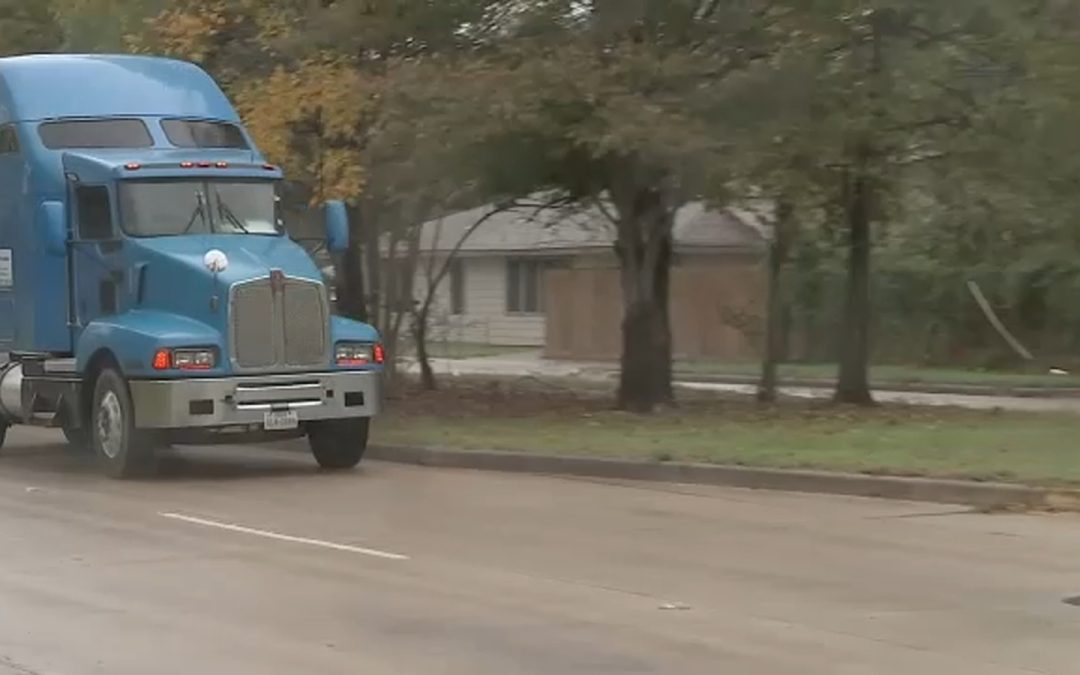Residents of Settegast, a neighborhood in northeast Houston, have been speaking out about the impact of heavy truck traffic on their daily lives. Patricia Ridley, who has lived in the neighborhood for six decades, expressed her frustration with the constant noise and disruption caused by large trucks in the area.
In an interview with ABC13, Ridley described the challenges that residents face, including loud music, U-turns, and the deterioration of local streets due to the weight of the trucks. She emphasized the toll that the situation has taken on the community, particularly on elderly residents like herself.
The issue of heavy truck traffic is not isolated to Settegast. Across Houston, neighborhoods are increasingly affected by the influx of trucks, especially those that directly lead to major highways. Business owners like Whitney Hall have also voiced their concerns about the impact of heavy truck traffic on local infrastructure and the wear and tear it causes to vehicles.
Furthermore, residents like Ridley feel that the situation is exacerbated by systemic factors, expressing concerns about the targeting of the predominantly Black neighborhood. The frustration and fear of community members were underscored by a recent tragic incident involving an 18-wheeler and a well-known resident of Settegast.
In response to these concerns, the city’s Planning and Development Department has reported thousands of truck-related accidents along non-interstate roadways. Efforts are now underway to address the issue, with city officials working on a plan to enforce a ban on trucks weighing more than 26,000 pounds from residential neighborhoods. The proposed measures include the use of GPS systems to create designated truck routes using highways and roads, along with fines for drivers who do not adhere to these routes.
As the city council prepares to vote on requiring city-wide truck routes, Settegast is poised to be part of a pilot program next spring, with potential implementation across Houston as early as next summer. If these measures are successful, it could bring much-needed relief to residents who have long endured the negative effects of heavy truck traffic.
Ultimately, the plight of Settegast residents sheds light on the broader issue of heavy truck traffic in urban neighborhoods and the need for proactive solutions to address its impact. It is a reminder of the importance of prioritizing the well-being and safety of communities, particularly those that have historically faced disproportionate challenges. With ongoing advocacy and a commitment to finding sustainable solutions, there is hope for a more peaceful and harmonious coexistence between residents and heavy truck traffic in Houston and beyond.
